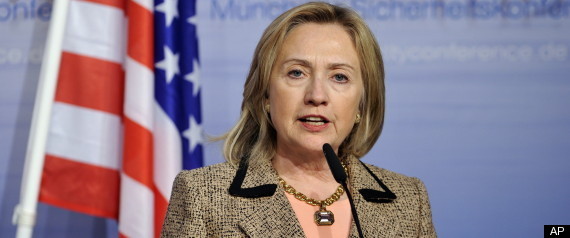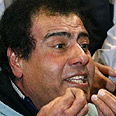Knox has tainted the study; the real question is, Was McReynolds opposed to Brandeis and Frankfurter because they were JEWS or because their policy choices and support were, in McReynolds' judgment, harmful to American interests?
ISSN 1062-7421
Vol. 12 No. 8 (August 2002) pp. 439-442 (University of Maryland, College of Behavioral and Social Sciences)
THE FORGOTTEN MEMOIR OF JOHN KNOX: A YEAR IN THE LIFE OF A SUPREME COURT CLERK IN FDR'S WASHINGTON by Dennis J. Hutchinson and David J. Garrow (Editors). Chicago: The University of Chicago Press, 2002, xxiii, 288 pp. Cloth $32.50. ISBN 0-226-44862-2.
Reviewed by Tinsley E. Yarbrough, Department of Political Science, East Carolina University.
Parents caution their children, "Be careful what you wish for; you might get it." John Frush Knox (1907-1997) longed to become a clerk to a Supreme Court justice, and his wish came true. Knox served during the Court's watershed 1936-37 term as secretary to James Clark McReynolds, the most stridently reactionary of the "Four Horsemen," with whom working was likened to a daily walk through a mine field.
Even at seventy-five, the justice was an impressive physical specimen-tall, trim, impeccably dressed, with the countenance of a Roman senator and a host of female admirers. To his credit, the wealthy bachelor jurist also apparently had a genuine affection for children, providing financial support for over thirty child victims of the Nazi blitzkrieg in England and offering to contribute the first $10,000 to the Save the Children Fund.
But McReynolds was also one of the pettiest, most irascible, bigoted, and mediocre justices ever to sit on the high bench. He detested the Court's Jewish justices, admonishing his staff not to associate with them or their staffs. Indeed, no official Court photograph exists for 1924 simply because McReynolds refused to sit next to Justice Louis D. Brandeis, as required by Court protocol. The justice forbade his clerks, moreover, to fraternize with his "darky" messenger and cook. When McReynolds died in 1946, no member of the Court attended his funeral.
Not surprisingly, John Knox's year with the justice proved a painfully frustrating experience, relieved only by the friendship of McReynolds's servants, the attentions of one of the justice's women friends, the sympathetic indulgence of several other justices, Knox's fascination with Washington, the thrill of attempting surreptitiously to circumvent McReynolds's myriad rules and idiosyncrasies-and the detailed diary entries that would become the basis for his fascinating memoir.
Knox was almost as eccentric as his subject. Raised in suburban Chicago in the 1920s, he received a bachelor's degree from the University of Chicago, a LL.B. at Northwestern, and a LL.M. at Harvard. As a lonely high school senior, he had begun keeping a daily diary. A descendant of a Confederate veteran and fascinated with war, he also began corresponding with veterans, then turned his efforts to seeking the autographs of celebrities, and finally began corresponding with Justices Oliver W. Holmes, Willis Van Devanter, and Benjamin N. Cardozo, who not only responded but eventually granted Knox personal audiences. In fact, when
Knox was offered a clerkship with McReynolds, Justice Van Devanter was
Page 440 begins here
the intermediary, not Felix Frankfurter, who was the major conduit to a Supreme Court clerkship in that era, but had given Knox a minimal passing grade in a Harvard class and obviously enjoyed absolutely no influence with the anti-Semitic McReynolds.
Knox's career after his clerkship was as lackluster as McReynolds's judicial record. He initially landed a position with a prestigious Chicago firm but was fired when he failed the Illinois bar. Although he passed the bar on his third attempt, he never acquired a secure and permanent position with a firm. An attempt to run the faltering family mail-order book business after his father's death proved disastrous, but he eventually found his niche in the Chicago claims office of the Allstate Insurance Company, a Sears subsidiary, working there until his retirement in 1973. The dwindling value of the Sears stock on which his retirement income was
based made Knox's last years extremely precarious ones. A lonely bachelor who struggled with prostate cancer the last decade of his life, he died in 1997.
The Supreme Court Historical Society published Knox's unsigned account of Justice McReynolds's career in 1983 and a lengthy summary the next year of his recollections of Chief Justice Charles Evans Hughes, particularly during the 1936-37 Term. He tried for several years to interest Simon & Schuster in his memoir, but that and similar efforts were unavailing, in part because Knox was willing to release only portions of his manuscript prior to signing a contract.
Thanks to Professors Hutchinson and Garrow, the memoir is now available and well worth the wait. Knox certainly did not succeed in his stated intention to surpass Pepys as a diarist, and his work is often more revealing of its author than its subject. But it is clearly the most intimate and candid account of a clerk's relationship with a justice, that justice's lifestyle and personality, and the daily workings of the Court ever to appear in print.
By the time Knox began his clerkship, the Court's sessions were being held in the recently completed Supreme Court building. But most justices, including McReynolds, continued to work at home. Home to the justice was Suite 502, a luxurious thirteen-room apartment at 2400 16th Street, N. W. Knox began his duties there with great anticipation for a rewarding year.
But disillusionment quickly followed. McReynolds seemed decidedly more insistent that Knox master the rituals of his household and Washington society, including its complicated rules for the exchange of calling cards, than his official duties. Early in his tenure, the justice asked his clerk to draft an opinion. Knox worked diligently for days, producing draft after draft. With hardly a glance at his clerk's handiwork, McReynolds then quickly wrote his own-in Knox's view, inferior-opinion in the case.
Knox found the treatment the justice accorded his African-American messenger Harry Parker and cook Mary Diggs especially disturbing. Messengers were regularly obliged to go beyond their Court duties, acting as personal servants to their justices, but McReynolds's demands of Parker were excessive by any measure. Parker served McReynolds until the justice retired in 1941, and then became Robert H. Jackson's clerk. Two of his sons also worked at the Court. Katherine Ogden Savage, the McReynolds lady friend who befriended Knox, providing him regular
Page 441 begins here
social opportunities without the justice's knowledge, said that for years Harry Parker "did almost everything but breathe for the Justice." Mary Diggs was also extremely efficient and an exceptionally talented cook. And although both referred to McReynolds as "Pussywillow" behind his back, they were invariably respectful and scrupulously attentive to the justice's every need. McReynolds, by contrast, generally treated them with contempt and suspicion. Most demeaning of all, McReynolds enlisted Parker as a human bird dog on hunting trips, obliging his messenger to wade through icy water to retrieve the justice's kill.
McReynolds admonished Knox, for obviously social and racial reasons, not to become too familiar with his servants, but to no avail. Parker and Diggs became his closest friends and allies, offering him valuable advice in his efforts to cope with the justice. ("You can't smoke or drink," the messenger explained at one point, "and you can't have no dates with girlfriends during the year. If anybody is going to do any dating, it will be the Justice and nobody else.") When they invited Knox to share lunch with them in the kitchen while McReynolds was away, they seated the clerk at a separate table-a nod to racial tradition Knox quickly corrected.
The justice's anti-Semitism hardly escaped his clerk either. Parker told Knox of McReynolds's bitter distaste for Justices Brandeis and Cardozo, but a note to the justice from one of his women friends was perhaps most revealing. While confined in a hospital, she wrote McReynolds, "[t]he head doctor on the floor . . . has been in here a number of times to talk with me on one pretext or another. But he is a Jew! It's obvious. Imagine! ... I was, of course, REPELLED. He even touched me with his hands! What lengths these Jews will go in order to make a conquest!" When Mary Diggs showed the letter to a shocked Knox, she began laughing. "Mr. Knox, you sure do look surprised! But you know he don't like no Jews and neither do his lady friends."
Accounts of McReynolds's female relationships also provide moments of humor for his readers, if not for Knox himself. Desperate to keep each woman friend ignorant of the others, the justice was enraged when Knox confused one woman telephone caller's voice with another's. Knox's association with Mrs. Savage, who lived one floor above the justice's apartment, was entirely platonic, as he repeatedly assured an initially dubious Parker. But he was obliged to be constantly on guard lest the justice learn of their relationship, and once had to hide in a bedroom when the justice made an unexpected call at Mrs. Savage's suite.
The most interesting portions of Knox's memoir are devoted to changes in McReynolds's mood and behavior as the Court's eventful 1936-37 term progressed. Bolstered by the LITERARY DIGEST and its grossly unreliable sample survey predictions of a Republican landslide against FDR in the 1936 presidential election, the justice's spirits remained reasonably good through the early fall. But when GOP candidate Alf Landon won the electoral votes of only two states, the LITERARY DIGEST disappeared from the McReynolds household and the justice's disposition grew increasingly dark. McReynolds took some comfort from the opposition FDR's Court-packing plan provoked. But the defection of Owen Roberts to the liberal side doomed the Court's anti-New Deal coalition to permanent defeat. The "Four Horsemen" gathered at 2400 for strategy sessions and persuaded McReynolds to draft the group's
Page 442 begins here
dissent in the monumental JONES & LAUGHLIN case, which the justice delivered extemporaneously and forcefully from the bench. As time went on, though, McReynolds, never a very industrious jurist under the best of circumstances, grew increasingly indifferent to the Court's docket-and difficult for his staff to tolerate.
Whatever the frustrations of his post, Knox had fully intended to complete the term with McReynolds. But that was not to be. When the justice learned that his clerk had been studying for the bar and planned to take the examination, McReynolds issued an ultimatum: if Knox persisted with his plans, he would be discharged and his salary stopped immediately. When Knox refused, the justice promptly followed through with his threat, without so much as a goodbye to a person with whom he had close contact for most of a year. In 1938, when Knox paid a visit to Harry Parker and Mary Diggs, the messenger insisted that he say hello to the justice so that the two "could be friends again." McReynolds greeted his former clerk in a "cordial but distant manner," leaving Knox "feeling a bit chilled despite
the warm weather." He never saw the justice again. With the publication of this memoir, however, Knox has finally had the last word.
***************************************************************************
Copyright 2002 by the author, Tinsley E. Yarbrough.




